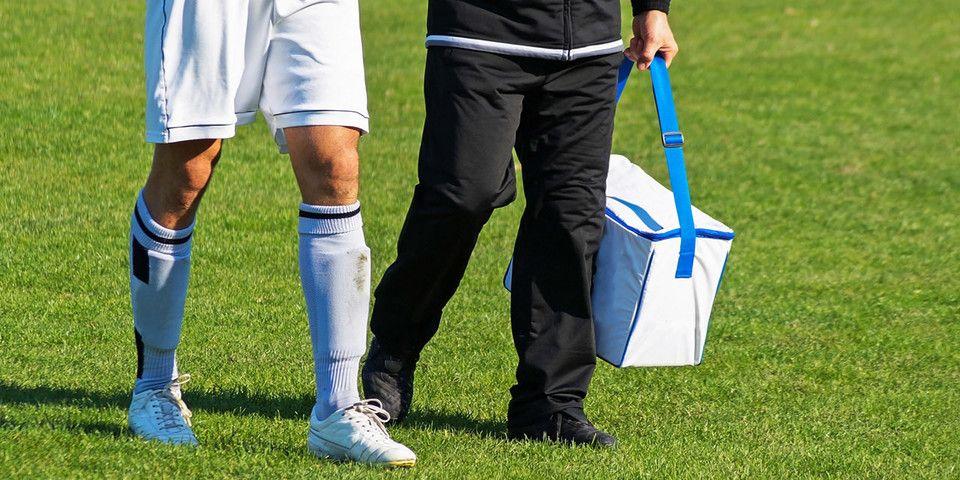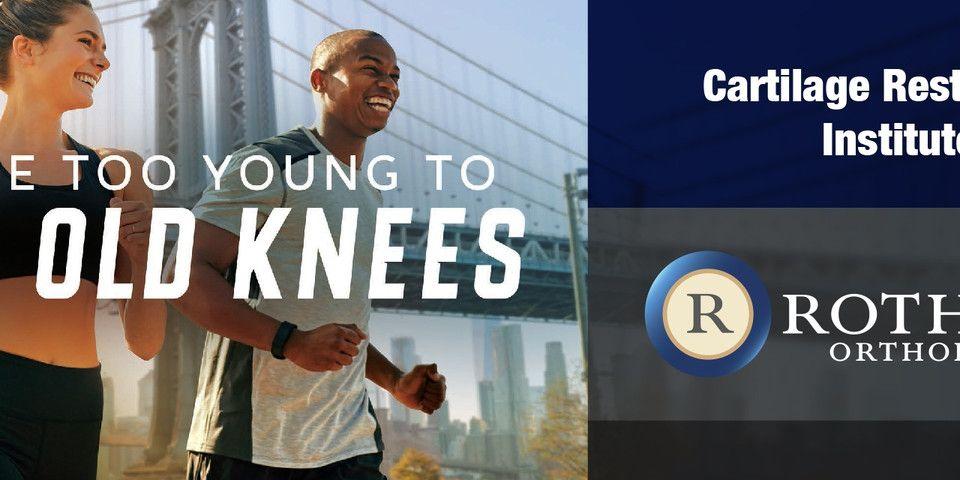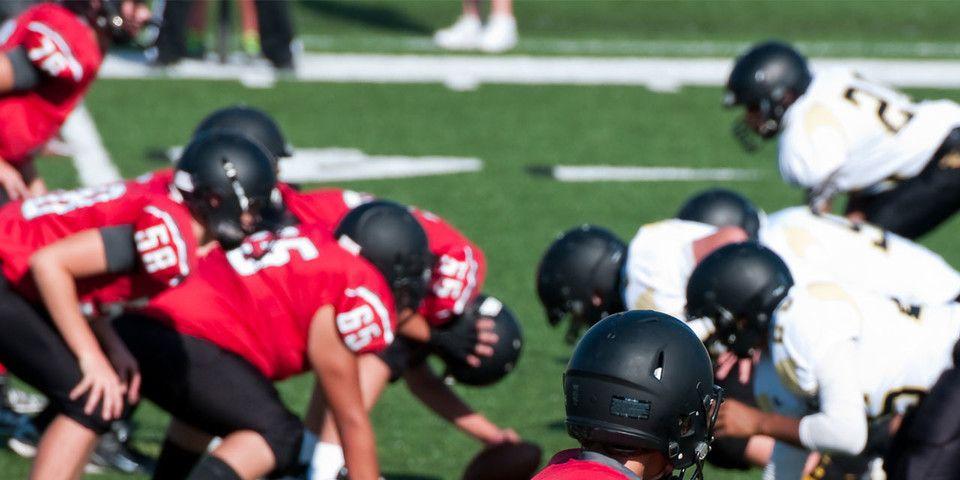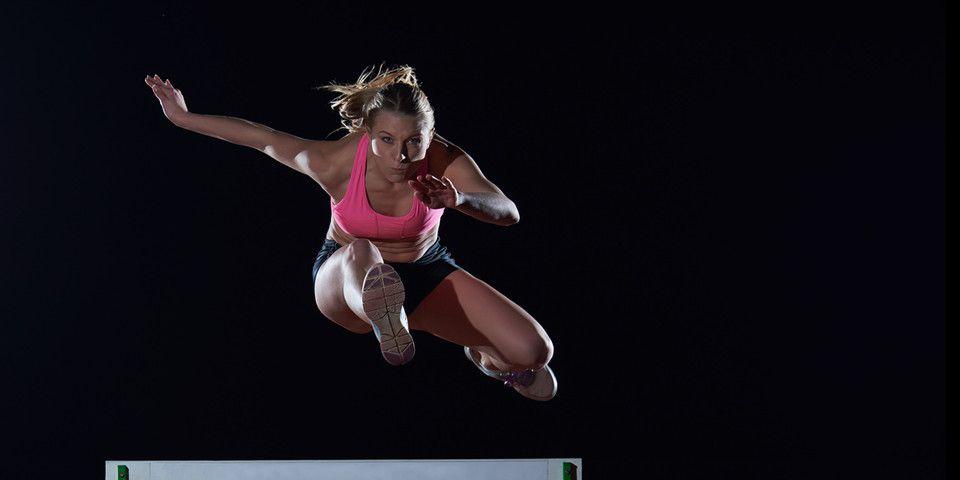The Athlete’s Guide to Runner’s Knee
Experiencing pain in your knee during or after running can be concerning, but understanding the symptoms and treatment options available can help you manage and recover from runner's knee effectively.
What is Runner’s Knee?
Runner’s knee, scientifically known as patellofemoral pain syndrome (PFPS), is a common orthopedic condition affecting the kneecap and surrounding tissues. It typically manifests as a dull, aching pain in the front of the knee, exacerbated by activities like running, squatting, or prolonged sitting with bent knees.
Symptoms of Runner’s Knee
Symptoms of runner’s knee include:
- Aching pain during physical activity involving knee bending
- Pain after prolonged periods of sitting
- Increased pain with high-impact or repetitive knee movements
- Sensations of popping or cracking in the knee
- Inflammation around the kneecap area
Common Knee Injuries From Running
- Runner’s Knee (Patellofemoral Pain Syndrome)
- Anatomic causes: Overuse, structural deformities, alteration of cartilage behind the patella
- Biomechanical causes: muscle imbalance in the hips, over-training of the quad and hamstring muscles, flat feet
- Symptoms: Pain behind or around the kneecap, worsens with activity.
- Treatment: Rest, ice, compression, elevation (RICE method), physical therapy, knee brace, surgery in severe cases.
- Jumper’s Knee (Patellar Tendonitis)
- Causes: Repetitive stress, muscle imbalance, misalignment.
- Symptoms: Pain at the front of the knee, worsens with jumping or bending.
- Treatment: Rest, ice, physical therapy, strengthening exercises, possibly surgery for severe cases.
- Iliotibial Band Syndrome (ITBS)
- Cause: Overuse, friction of the IT band.
- Symptoms: Pain on the outside of the knee, worsens with running.
- Treatment: Rest, ice, stretching, orthotics, physical therapy, surgery if conservative treatments fail.
- Osteoarthritis
- Cause: Cartilage breakdown from overuse.
- Symptoms: Pain, stiffness, reduced range of motion.
- Treatment: Diagnosis by musculoskeletal or orthopeadic specialist, conservative treatment (medications, injections, physical therapy), surgery (knee replacement) for severe cases.
Knee Pain Myths and Facts
- Myths About Knee Pain
- Myth: Decrease activity for knee pain relief.
- Fact: Controlled activity and exercise are beneficial for joint health.
- Myth: All knee pain is from injury.
- Fact: Some knee pain results from degenerative conditions like osteoarthritis.
Causes of Runner’s Knee
Several factors contribute to the development of runner’s knee:
- Lower Extremity Muscle Imbalance: Activities like running require an incredible amount of controlled muscle activation and coordination. Imbalances that start in the core and hips can impact the motion of the kneecap as the knee moves through the motion of running, leading to inappropriate movement that results in inflammation and pain
- Overuse or High-Impact Activities: Engaging in repetitive motions like running or jumping can strain the knee joint over time, leading to tissue irritation and pain, especially in the setting of muscle imbalance.
- Chondromalacia Patella: Softening and breakdown of the cartilage beneath the kneecap can cause inflammation and pain.
- Patellar Malalignment: Structural issues or muscle imbalances can cause the kneecap to track incorrectly, contributing to pain during movement.
Diagnosis and Treatment
If you suspect you have runner’s knee, it’s crucial to seek medical evaluation to determine the severity and appropriate treatment plan. Treatment options may include:
- Activity Modification: Adjusting the frequency or intensity of activities to reduce stress on the knee.
- Rest: Resting the knee, applying ice, compression, and elevation (RICE), are often the best first steps
- Rehabilitation: Targeted assessment and physical therapy aimed at addressing muscular imbalance with exercises to strengthen weaker muscles and improve flexibility in stiffer muscles is a key to successful treatment of runner’s knee.
- Medications: Non-steroidal anti-inflammatory drugs (NSAIDs) can help reduce pain and inflammation.
- Orthotics and Bracing: Using supportive devices such as orthotics or knee braces to stabilize the knee joint.
- Surgical Options: In severe cases, surgical procedures like arthroscopy or tibial tubercle transfer may be considered to correct underlying structural issues.
Expert Care at Rothman Orthopaedics
Understanding the symptoms, causes, and treatment options for runner’s knee is essential for effectively managing and recovering from this common condition. By seeking timely medical attention and following a personalized treatment plan, you can alleviate pain and regain full function of your knee.
At Rothman Orthopaedics, our sports medicine experts specialize in diagnosing and treating runner’s knee. We offer comprehensive musculoskeletal care to help you recover and return to your active lifestyle.
For more information or to schedule a consultation, visit Rothman Orthopaedics or contact us at 1-800-321-9999.
Related Specialties
Related Conditions
Related Treatments
Related Programs
-

Athletic Training- Sport Medicine Outreach
Our Field Athletic Trainers provide direct sports medicine care to youth, high school, college and professional athletes. Rothman AT’s provide athletic training services throughout Southeastern PA to interscholastic high schools, colleges, as well as tournaments and special events.Read More -

Cartilage Restoration Institute
This is a center where patients can go to have their disabled joint biological resurfaced, realigned, and stabilized without having the joint replaced by artificial materials such as metal and plastic. It is well known that the outcomes of patients under the age of 50 undergoing artificial joint replacement are not as good as we would like. Therefore we feel the future of Orthopaedics is to try to restore a joint back to its original anatomy by realignment, ligament reconstruction, and cartilage restoration.Read More -

Injury Prevention Program
The Injury Prevention Program at the Rothman Orthopaedic Institute is dedicated to the prevention of injuries from athletic participation, particularly youth sports.Read More -

Women’s Sports Medicine Program
The Women’s Sports Medicine Program at the Rothman Orthopaedic Institute is the first of its kind in the Philadelphia metro area and one of only several such programs specializing in the comprehensive care of the female athlete in the country.Read More




